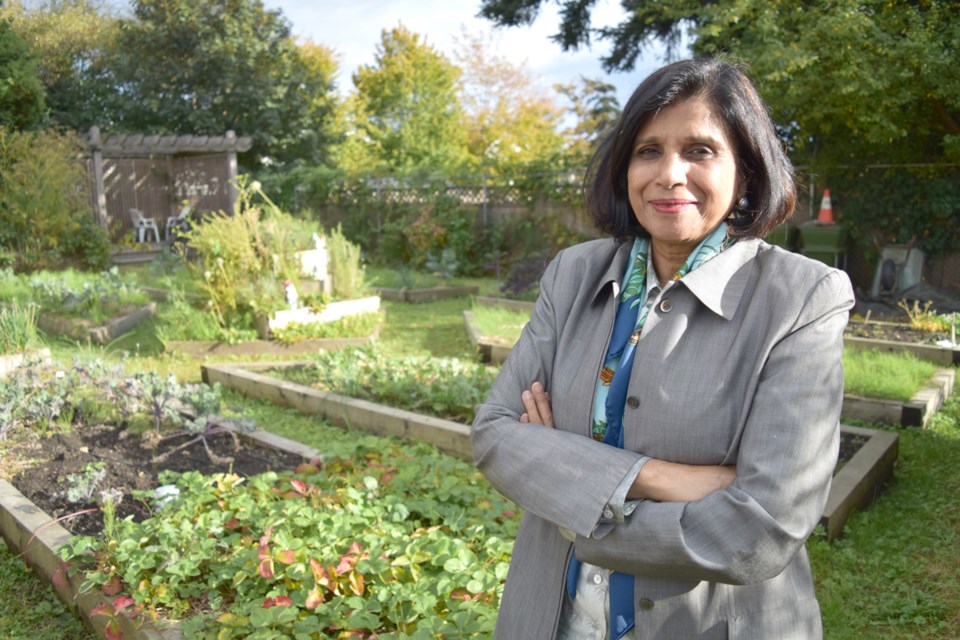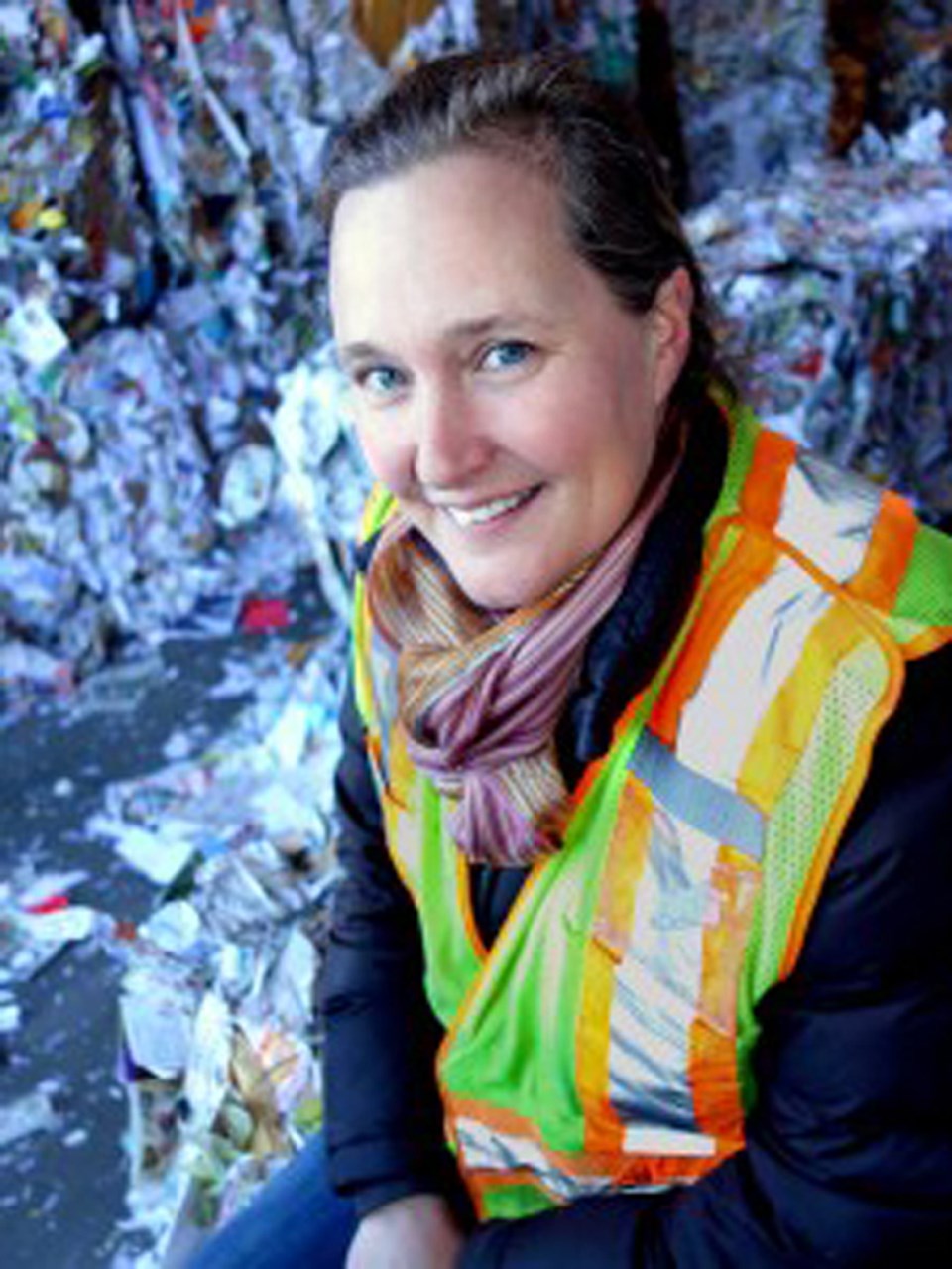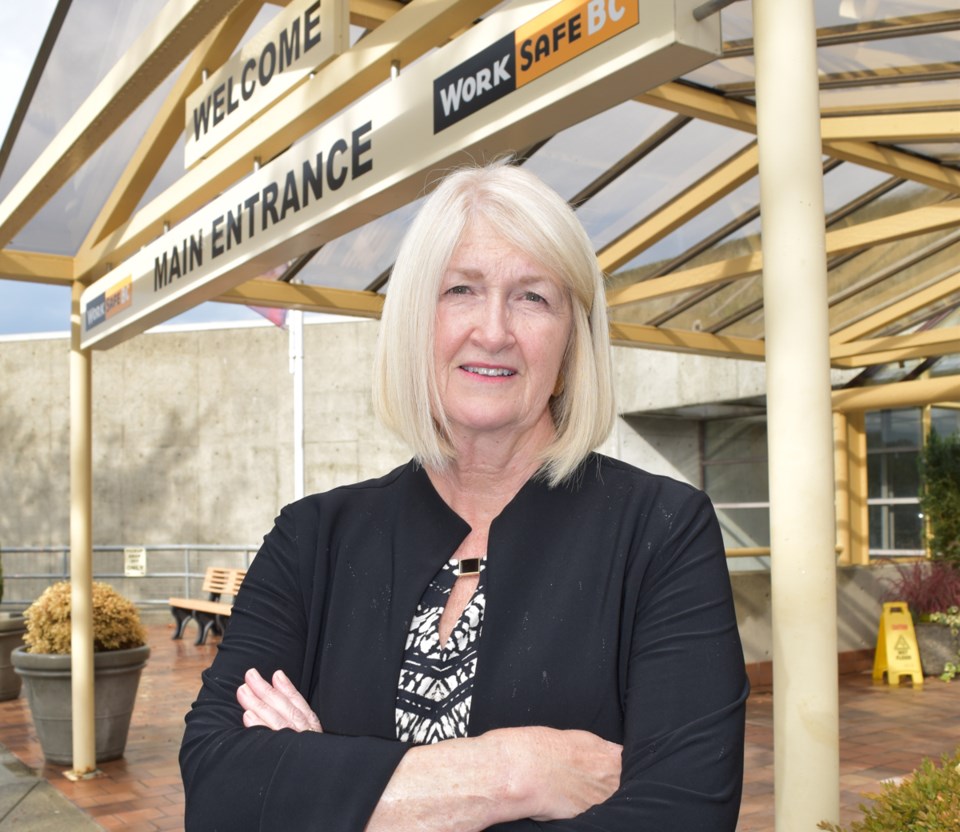They may have come from different beginnings and taken alternate routes to get to where they are today, but the life experiences of a trio of Richmond’s top female executives possess similar threads that weave together the qualities of determination, empathy and passion.
Their collective stories of exploration, setbacks and triumphs as women in the business world will form a backdrop during the Richmond Chamber of Commerce’s Women in Leadership Panel and Luncheon next Thursday (Sept. 27) at the Sheraton Vancouver Airport Hotel.
The three — Diana Miles, president and CEO WorkSafeBC, Ratana Stephens, co-CEO of Nature’s Path Foods Inc., and Nicole Steffenelli, founder and CEO of Urban Impact — will also impart their thoughts on what the numbers tell us about the role women play in today’s workforce.
According to Statistics Canada, women have become an increasingly powerful segment, one markedly different from the generations brought up in the 1950s and even the 1960s when the phrase “a woman working in a man’s world” had some traction until traditional male-female roles started to change.
Today, the phrase has become almost archaic. And it’s one that people, such as Miles’ father, who she counts as one of the major influences in her life, helped start to change.
“He was kind of ahead of his time and just believed it didn’t matter if you were male or female, if you turned your mind to it and worked hard, you could probably do whatever you wanted,” said Miles, who became Richmond-headquartered WorkSafeBC’s first female president and CEO in 2014. “When my dad was very young, his mom worked and supported two kids because his father died early, and from that, he became a strong supporter of women in workplaces.
“That was a good thing, because he had three daughters to support,” she laughed, adding her father was also very values-based and believed that you go with the right person for the job, regardless of gender.
His philosophy wasn’t all that common for his generation in the 1950s, but Miles said her father remained true to it.
It’s during that era that Statistics Canada shows that about one-quarter of women aged 25 to 54 participated in the labour market. In contrast, virtually every man in the same age group was participating in the labour market during that period.
But as society began to change, with smaller families and a growing number of service sector jobs, the presence of women in the workplace increased.
From 1953 to 1990, the labour force participation rate for women grew steadily, rising from about 24 per cent in 1953 to 82 per cent in 2014, according to Statistics Canada.
But as the number of working women rose, the same couldn’t be said for the amount they were being paid in comparison to men. Even today, the Canadian Women’s Foundation states that out of 34 countries in the Organisation for Economic Co-operation and Development (OECD), Canada had the seventh-highest gender wage gap in 2014.
The foundation also claims that, on average, women who work full-time earn just 72 cents for every dollar earned by men.
It’s a gap that Stephens, who in 1971 along with her husband, Arran, built their business on producing cereals and other foods from organic ingredients, said is starting to narrow, along with the level of jobs women are attaining.

“Definitely. I see it every day. I think societal shift is happening. The bias against women is slowly melting away because there are capable women out there,” she said.
Part of that is owed to Stephens’ belief that women, as a group, are, instinctively, more nurturing than men.
“They are very caring and empathetic, and in business, when you are trying to lead a company it takes compassion, nurturing and caring to succeed.”
It’s a quality Stephens had demonstrated to her as a young child growing up in India where her grandmother insisted she be allowed to follow her dreams.
“My father, when he learned that I wanted to go to university, asked my grandmother why she was sending me there. He asked, ‘Is she going to be a lawyer?’” Stephens said. “Hearing that my grandmother stood up straight and told him, ‘She is going to be what she wants to be.’”
It’s that type of conviction that drove Urban Impact’s CEO to create her recycling business that opened its doors locally in 1989.
Returning from a lengthy backpacking trip to Europe, where Stefenelli discovered recycling was a way of life, she was determined much more could be done in the Lower Mainland to limit what was not only a stream of resources being wasted, but a harmful blight on the environment.
“I don’t think I was viewed as a radical hippie back then, but people were certainly looking at me and wondering what planet I was from,” she said. “I was young, not particularly educated, but very passionate and having people take me seriously in the industry required some effort.”
Another major influence back-stopping her conviction to clean up the environment was Stefenelli’s parents, who came to Canada from Europe (Germany and Austria) in the 1950s.
“My parents arrived with nothing and I grew up in a modest household with the desire to improve and build on what they had started. That’s what drove me through my early business career,” she said. “The philosophy was that no one was going to give me anything. I had to make it by myself.”
While, as an entrepreneur, she didn’t have to try and break through the clichéd “glass ceiling” some women see as an impediment to advancing, Stefenelli said she did have to remain focused on her goals in order to succeed.

“I really don’t see it (glass ceiling), but certainly read about it,” she said. “Urban Impact is extremely committed to putting the right people in the right positions, regardless of age, gender or otherwise.
“If you have the spirit of an entrepreneur, there are really few barriers,” she said. “One of them, of course, is financial. But if you have the passion, the ability to see the opportunity ahead, and are willing to take advice along the way, you have a shot at succeeding.”
That’s the type of advice Stefenelli and her fellow panelists are planning to impart on their audience next Tuesday, which will include 90 or so female high school students in Grades 10 to 12.
Top of the list for WorkSafe’s Miles is to be open to take risks
“Don’t limit yourself,” she said. “And be willing to do the work, challenge yourself and try different things.
“We all need to stretch and, in some environments, say I’m here for the long-term, I’m a player and will do what I need to in order to be effective and I expect the respect to go with that.”
Being self-limiting can also be a huge problem, not just for women, she added.
“Often, women have been that way. So, don’t do that. Be willing to say, ‘That didn’t work so well, so I am going to try something else.’
“You also need to realize that you come to the table with a tool kit and during your whole life you’re adding to it. Everything you do adds to your experiences.”
Remaining focused is vital said Stephens who recalled how in the early days of Nature’s Path, their pledge to create organic products was not given much currency.
“People laughed it off in the beginning,” she said. “But my husband is very strong and determined. And I learned from that.
“You have to be determined in what you believe in,” she added. “Find out what you love the most in life, what you want to do. You may change your path midway. That’s OK. You will also encounter failures along with your successes. That’s OK, too. But be focused.”
As for how to gauge your progress, Stephens said it’s important to remember that real success is not fast-tracked.

“Success is not an elevator where you press the button and it takes you up. Success is like climbing a ladder,” she said. “Take one step at a time.”
As for impediments getting in the way of an ascent, such as the perception of a glass ceiling, Miles said that while she believes one does exist in some ways, that’s changing. Helping that is the move towards having more women serve on boards.
“I think that is an important shift,” she said. “Not all businesses are there yet, but fortunately at WorkSafeBC more than 50 per cent of our board members are female. And I just think that provides a different dynamic to the discussion that takes place, because women address problems differently than men. Not necessarily better, but a combined approach, along with men, provides a result that is better.
“I think the fact that women are more than 50 per cent of the workplace in so many occupations, it’s important to have their voice and experience at the decision-making tables,” Miles said. “I’d say that most organizations fully understand that and operate that way.
“It’s a far more inclusive business environment we are in now than generations ago.”
Miles added that women, at times, are more collaborative than men and are also more willing to move towards a slower solution, so that they get to hear all of the voices around a table.
“Sometimes, that’s not practical,” she said. “I would say that my style is collaborative. But in the heat of the moment, when we have an issue, everyone gets to voice their view. We’re not going to take days on arriving at a solution, so I need to know everyone’s perspective.”
The Women in Leadership Panel and Luncheon, moderated by Global News anchor Randene Neill, will be held Sept. 27 at the Sheraton Vancouver Airport Hotel. For tickets and information, visit online at RichmondChamber.ca.



